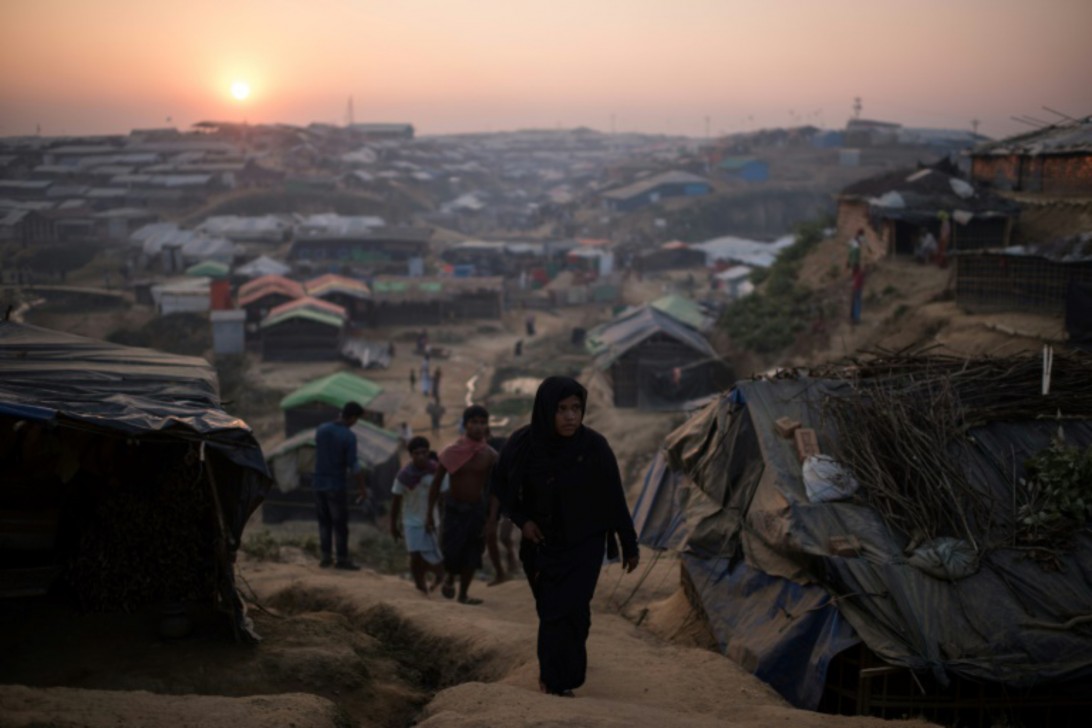by Syed Mansur Hashim
By all indications, yes, it is waning. Not from ours, but from the perspective of the international donor community that has been providing humanitarian support to the million or so Rohingyas stranded on Bangladeshi soil for two years now. The data speaks for itself.
As pointed out in recent media reports, the humanitarian response to the Rohingyas living in various camps in Cox’s Bazar is on the decline. The implication of this trend is surely not lost upon the government of Bangladesh (GoB). According to ICSG, a global platform of volunteer agencies working in the camps, as of August 24, 2019, Bangladesh has received only USD 330 million out of USD 920 million (36 percent) required to last the remaining months of 2019. So, where does that leave Bangladesh? If we look at the situation at the corresponding timeline when the crisis began in 2017, it was 73 percent, and in 2018 it was 71 percent. So, over the course of one year, donor commitments have declined significantly.
Last year, the Executive Director of the World Food Progamme (WFP) David Beasley had said that donor agencies were gradually losing their interest in providing food assistance for the displaced Rohingyas who had taken shelter in Bangladesh. In fact, Foreign Secretary M Shahidul Haque had briefed reporters after the meeting between the WFP chief and the prime minister that, “He (Beasley) informed the prime minister that the interest of the donor agencies to feed the Rohingyas is decreasing and the WFP is trying to keep alive this interest among the donor agencies under the UN system. But it’s very difficult for them to keep it up.”
Indeed, going by a discussion organised by the Centre for Policy Dialogue (CPD) in association with Transparency International Bangladesh (TIB) in May, 2018 titled, “Economic Implications of Rohingya Crisis for Bangladesh and National Budget”, we were exposed to the enormous challenges of getting the financial commitments needed to feed this massive refugee population. What was revealed at the discussion was that, in the first phase from September-December, 2017, fund required to provide humanitarian assistance to the Rohingya populace was USD 434 million. Bangladesh provided about one percent (USD 4.37million).
The UN, in its joint response plan, had appealed for nearly a billion US dollars for March-December 2018 to meet emergency needs of both the Rohingya and the host community, with at least 25 percent for the host community which would be negatively affected by the Rohingya influx. At the time of the CPD dialogue, a measly 16 percent of the fund sought had been confirmed and as rightly pointed out by CPD’s Executive Director Dr Fahmida Khatun back then, “if the crisis lasts long, donors at one stage may lose interest in providing funds for the Rohingyas as several human catastrophes are emerging across the globe.” And here lies the crux of the problem.
We have to wake up to certain realities here. The Myanmar government is not really bothered about repatriation because at the end of the day, the regime faces no real challenge to its actions against the Rohingya populace. The international community remains divided about what the UN response should be against a regime that has perpetrated horrendous crimes against a section of its own populace, driven them out of their homes en masse and forced them to cross international borders. The Myanmar government has effectively, depopulated the Rakhine state of Rohingyas. While the international community bickers about what should be an “appropriate response”, we do not expect such poor humanitarian assistance for the Rohingya populace residing on Bangladesh soil. GoB cannot be expected to foot the bill of taking care of such a massive population whilst the international community washes its hands off of its moral responsibility by slashing funds that are essential for their housing, health, and education.
We are informed by the WFP that it takes around USD 800,000 to feed over a million refugees a day. This is just one aspect of the financial burden that Bangladesh is increasingly undertaking on a daily basis.
Today, we are not getting anywhere with repatriation because major foreign powers refuse to be moved by the plight of a million people. We are told that their agencies are suffering from “fatigue” because the Rohingya crisis is seemingly an endless one. And if it is, it is no fault of Bangladesh. Rather it is the failure of the permanent members of the UN security council to speak in one voice to send the message that should have been sent in 2017 when the crisis first began unfolding, that ethnic cleansing will not be tolerated and those governments that allow for it to happen must be held accountable. And while that is going on, the financial commitments needed to deal with the humanitarian crisis must be met.
Syed Mansur Hashim is Assistant Editor, The Daily Star.










